ChatGPT continues to lead big in generative AI, but rivals are gaining ground
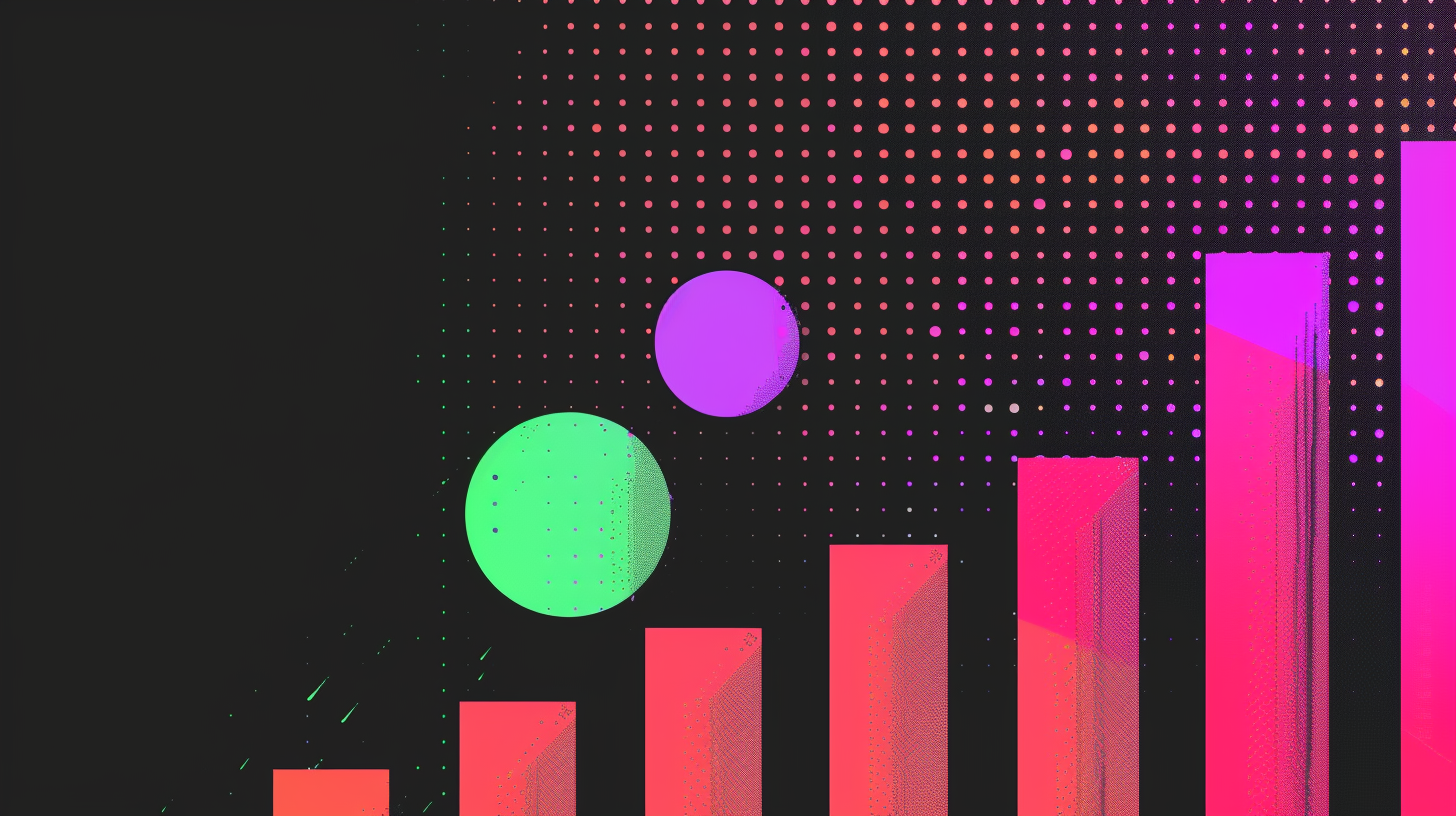
Key Points
- An Andreessen Horowitz analysis shows that creative tools for image, video, and music creation dominate the generative AI market. 52% of the companies analyzed focus on content creation or editing.
- Text-based applications such as ChatGPT continue to lead the market. ChatGPT's competitors, such as Anthropic's Claude and Perplexity, have recently gained some ground and are showing faster growth. However, they still lag far behind in total traffic.
- Video generator Luma Dream Machine has quickly become a top AI site with 22.6 million visits. Music generator Suno has also seen significant growth.
A new analysis by venture capital firm Andreessen Horowitz (a16z) shows that ChatGPT remains the most popular generative AI application. However, competitors like Perplexity and Claude are growing faster.
The a16z study examined the 100 most-used consumer generative AI applications. It found that creative tools continue to dominate the market, with 52% of analyzed companies focused on creating or editing content across various formats including image, video, music, and voice.
Among the 12 newcomers to the list, 58% are in the creative tools space. Since March, 30% of the apps analyzed were new entries, reflecting the market's rapid evolution.
Standout performers include Suno, which jumped from 36th to 5th place, and video newcomer Luma AI at 14th place. Suno's rival Udio also made a strong debut at #33.
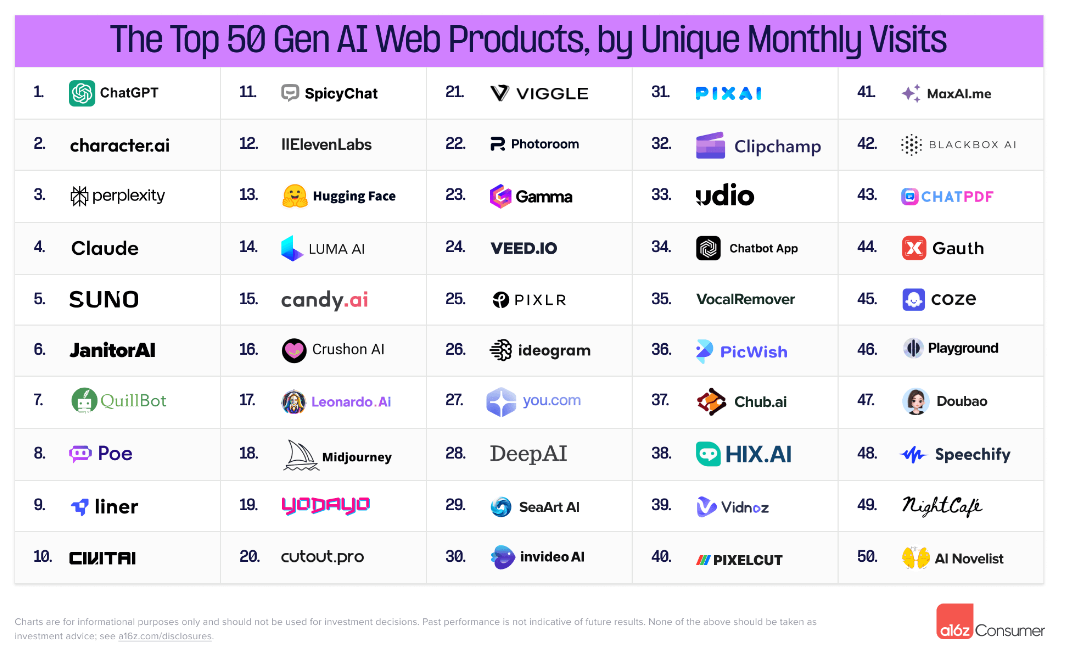
The share of image creation tools among the top content creation sites dropped to 41%. Of the five new creative tools added, only one - SeaArt - focuses on images. Three new entries target video (Luma, Viggle, and Vidnoz) and one is for music (Udio), reports a16z. On mobile devices, editing image and video content is the most common use for generative AI.
Text-based applications, especially ChatGPT, still lead the market. Anthropic's Claude, ChatGPT's best known competitor, rose from 10th to 4th place in the web rankings. Perplexity now ranks 3rd on the web and slightly outperforms ChatGPT in visit duration. Both rivals are growing faster than the market leader, but the gap remains significant.
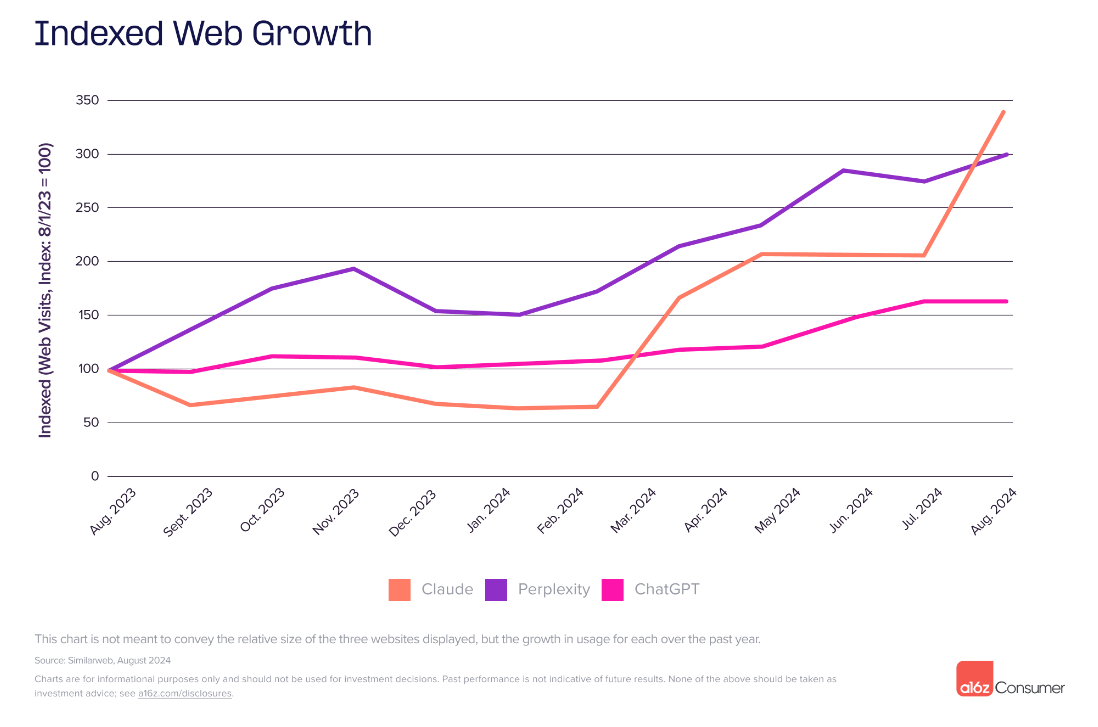
ChatGPT continues to lead big
Data from Similarweb underscores ChatGPT's continued dominance among chatbots. In July, global traffic on chatgpt.com dipped only 0.4% month-over-month, while U.S. traffic increased by 4.8%. Year-over-year, ChatGPT's traffic grew by 66.2% globally and 57.9% in the U.S. Monthly active users of ChatGPT apps in the U.S. increased by 4%.
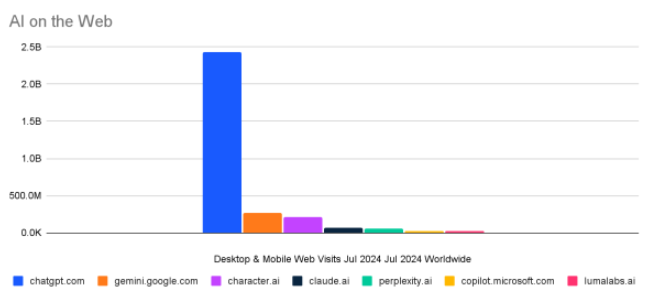
Claude saw the largest percentage growth, with a 64.9% increase from the previous month and a 440% jump year-over-year. Video generator Luma Dream Machine entered the top tier of AI websites with 22.6 million visits, boosted by launch hype in April.
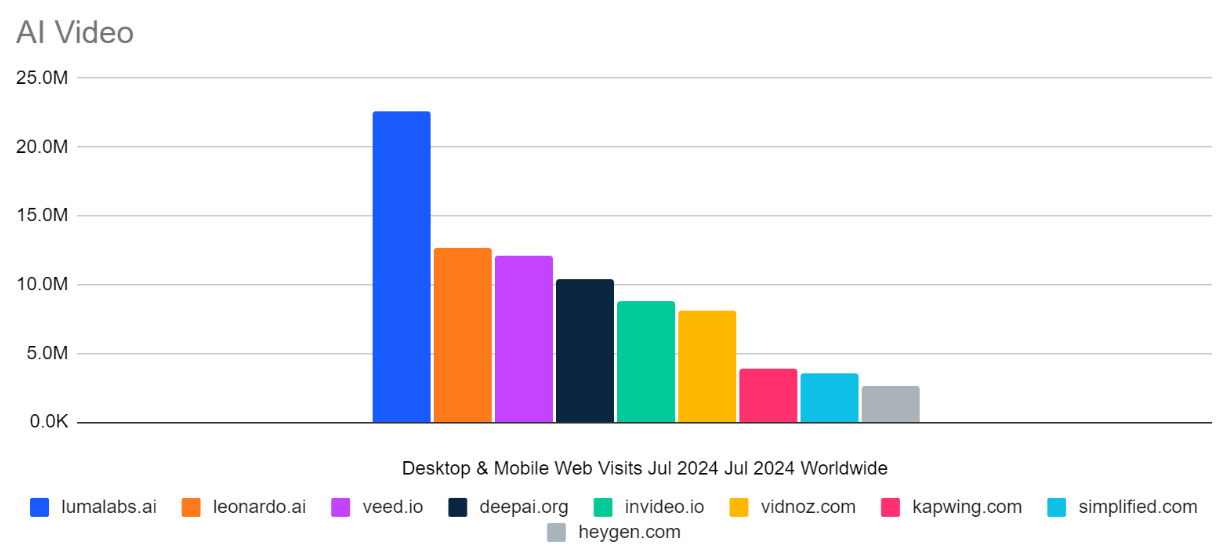
In contrast, web traffic for Google's Gemini and Microsoft's Copilot declined, though these represent only a fraction of the tech giants' AI efforts. Google integrates Gemini into many of its products, including as an assistant in Android smartphones.
AI News Without the Hype – Curated by Humans
As a THE DECODER subscriber, you get ad-free reading, our weekly AI newsletter, the exclusive "AI Radar" Frontier Report 6× per year, access to comments, and our complete archive.
Subscribe now